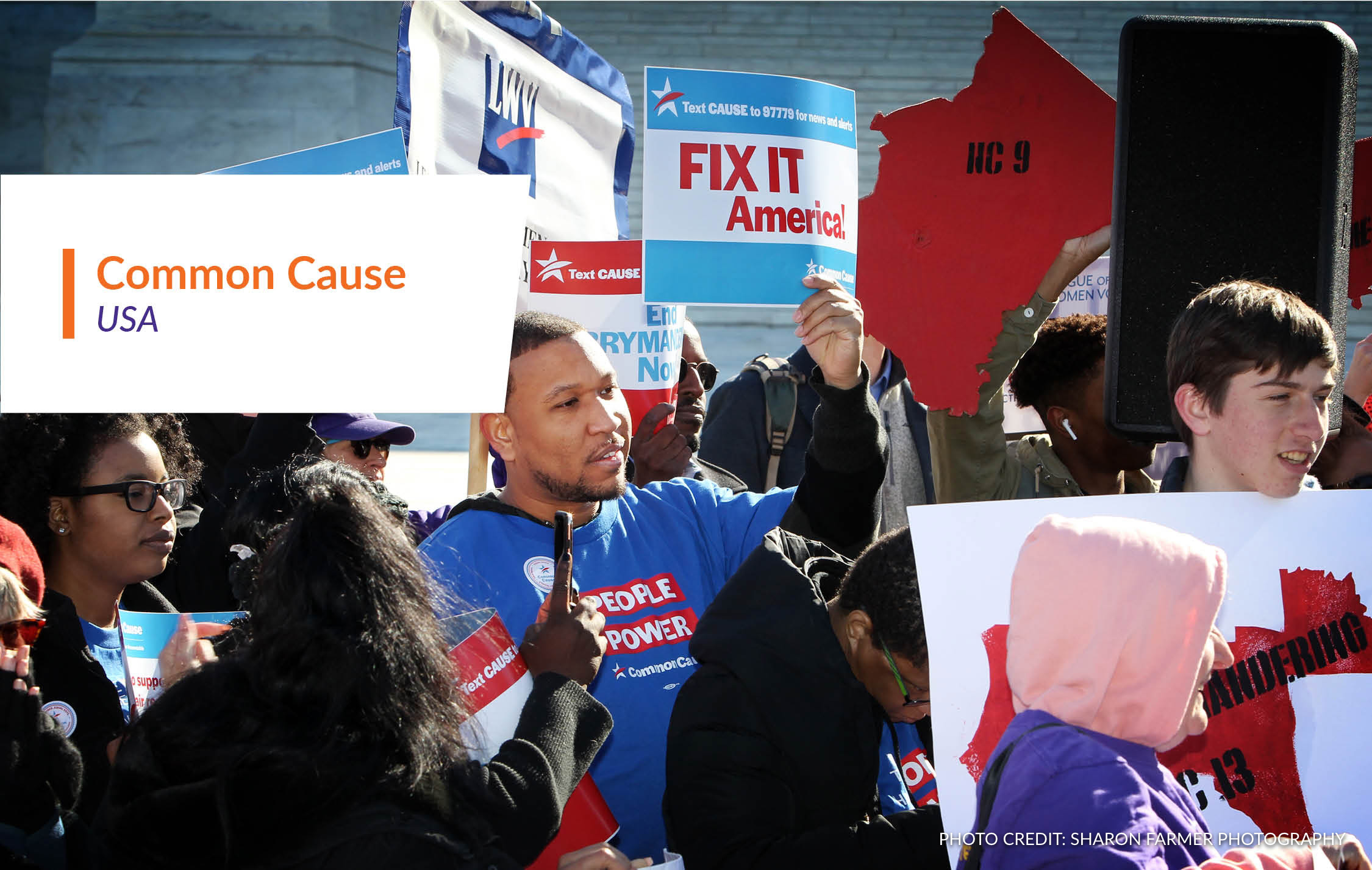Winner
U.S. Building Trust Prize
Civic Participation
Political Process Monitoring
Transparency and Accountability
Voter Information
Voting Rights and Access
Share this
Contact information
www.commoncause.org/redistricting
Facebook
Instagram
YouTube
X
TikTok
LinkedIn

Fair Maps 2030: Making redistricting inclusive, transparent, and nonpartisan
The Problem
Gerrymandering poses an existential threat to representative democracy in the United States. It allows politicians to choose their voters instead of the other way around. Access to precise demographic data and computer modeling allows elected officials to test an infinite number of election scenarios and preordain the partisan make-up of a legislative body. As a result, elected officials have built permanent majorities that are nearly immune to the will of the people as expressed through their votes. Even more troubling, elected officials running in districts in which their only political threat is from a primary opponent have incentive to ignore the true needs of their constituents. Instead, they focus on their special interest benefactors and bullying vulnerable communities. Redistricting led by politicians behind closed doors denies the public the right to make their voices heard in a democracy.
The Approach
To combat gerrymandering, Common Cause uses a combination of national policy expertise and experienced state staff who collaborate to support redistricting reform efforts and have won important victories across the country. The Fair Maps 2030 campaign supports ballot initiatives, legislation, litigation, and public education to ensure that the drawing of voting districts is inclusive, transparent, and nonpartisan.
In many states and localities, the campaign has won victories by creating independent citizen redistricting commissions to draw districts through ballot initiatives or legislation. Common Cause has successfully backed reforms increasing transparency and public participation while creating mechanisms mandating greater cross-partisan cooperation when the creation of fully independent commissions is less politically viable. They have also filed lawsuits challenging partisan gerrymandering and racial discrimination in redistricting. They have supported allies’ lawsuits through the organizing and drafting of amicus briefs that bring together unusual partners to demonstrate bipartisan support for fair maps. These efforts have struck down unfair maps and created new law that enshrines bans on partisan gerrymandering in state constitutions. Their creative public education campaigns – aimed at people who are less familiar with gerrymandering and its consequences – drive home the ways in which gerrymandering fails communities and skews policy outcomes.
The Impact
-
The independent redistricting commission law Common Cause authored, passed, and implemented in California has become the gold standard for reform across the country.
-
In the last six years, five states and many more localities implemented independent commissions, while courts in another four states banned partisan gerrymandering under state law.
-
In Moore v. Harper, a U.S. Supreme Court case, Common Cause successfully defended the power of state courts to protect voting rights in federal elections.
-
In 2018, they led or supported successful fights to make redistricting in Colorado, Missouri, Ohio, and Virginia less partisan.
-
In 2021, Common Cause New Mexico helped pass the state's first-ever citizen redistricting advisory committee.
-
National and state staff collaborated to draft independent commission measures that will be on the November ballot in Ohio and Los Angeles.
-
States with independent commissions have seen unprecedented gains for communities of color such as increased representation in Congress and legislatures.
The Future
Common Cause will continue efforts to pass ballot initiatives and legislation that transform democracy through fair voting districts. They will also focus on pursuing aggressive public interest litigation and on accelerating public education efforts. There is currently active litigation in Indiana, North Carolina, and Texas as well as promising developments for reform in California, Colorado, Massachusetts, Minnesota, New York, Ohio, and elsewhere which staff will help to improve and pass into law.